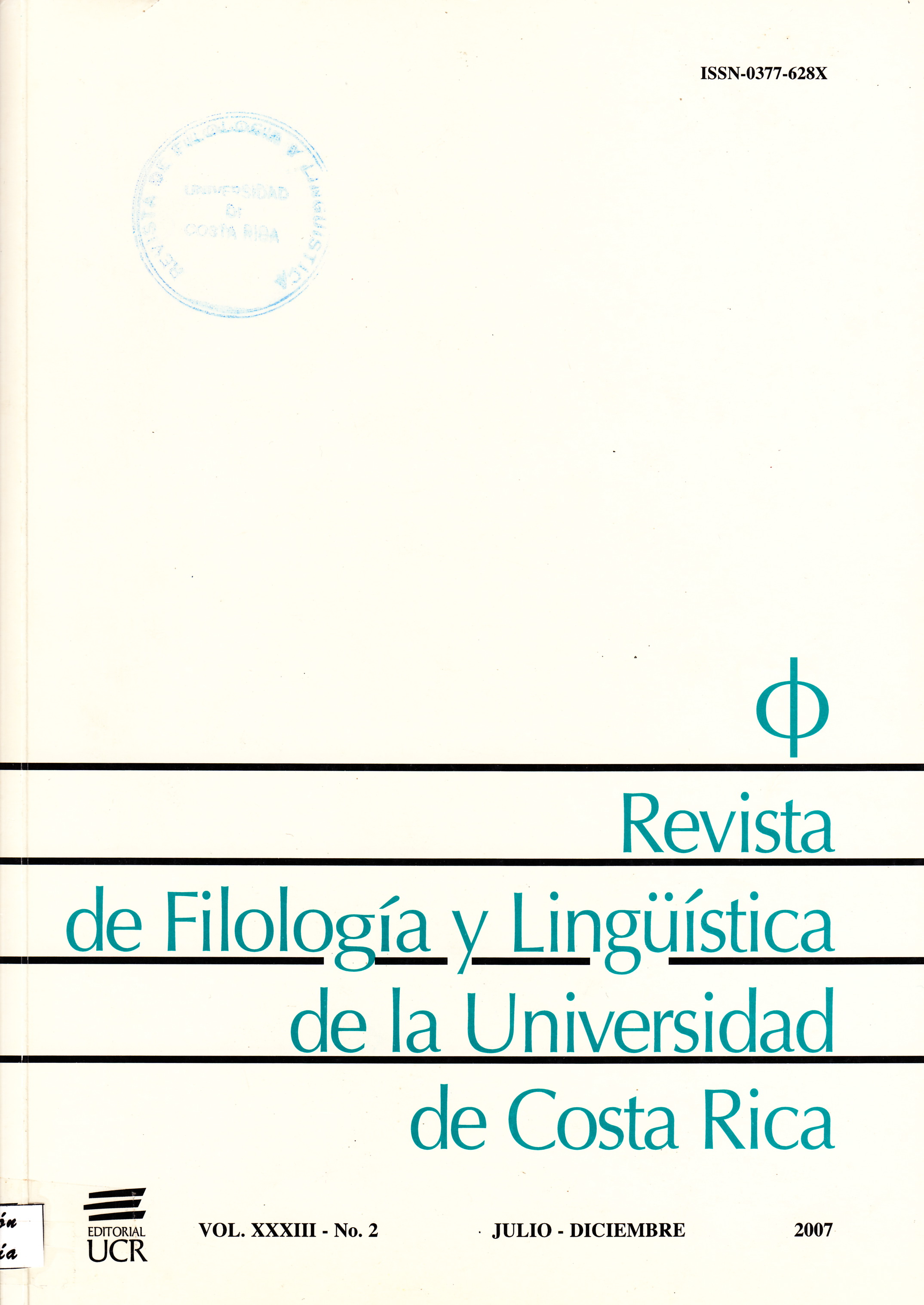Abstract
This article defends the hypothesis that Central American literature of the first part of the twentieth century established two receptive modalities for the vanguard: one from a regional perspective which constructed procedures of textual hybridization, and therefore, two integrated representational universes. And on the other hand, rejecting regionalism, and from that distancing, it assumed the mechanisms of those of the vanguard and procured the autonomy of the language in as much as the esthetic paradigm. Both writing models constitute the horizon of the two textual formations that are designed what has been called the literary rebirth of the second part of the twentieth century. I exemplify this discussion with a comparative analysis of the texts of Flavio Herrera and Yolanda Oreamuno, the most well known of this first model, whereas that of the author indebted to the second.References
Acevedo, Ramón Luis.1982 La novela centroamericana. Río Piedras, Puerto Rico: Editorial Universitaria.
(1994). “Orígenes de la nueva novela centroamericana (1968-1980)”. Revista La Torre. 7 (29): 113- 48.
Cardoza y Aragón, Luis. 1991. Miguel Ángel Asturias, casi novela. México: Ediciones Era.
Cuadra, Pablo Antonio. 1991. “Dos perspectivas”. Las vanguardias latinoamericanas. Jorge Schwartz (ed.). Madrid: Cátedra, 214- 215.
Foucault, Michel. 1985. La arqueología del saber. México, D.F.: Siglo Veintiuno Editores.
García Canclini, Néstor. 1990. Culturas híbridas. Estrategias para entrar y salir de la modernidad. México: Editorial Grijalbo.
Herrera, Flavio. 1949. Caos. Guatemala: Editorial Universitaria.
(1984). El tigre. Guatemala: Editorial Universitaria.
Huyssen, Andreas. 1989. “Guía del posmodernismo”. El debate modernidad-posmodernidad. Nicolás Casullo (ed.). Buenos Aires: Puntosur Editores, 266-318.
Liano, Dante. 1997. Visión crítica de la literatura guatemalteca. Guatemala: Editorial Universitaria.
Menton, Seymour. 1985. Historia crítica de la novela guatemalteca. Guatemala: Editorial Universitaria de Guatemala.
Oreamuno, Yolanda. 1940. “La vuelta a los lugares comunes”. Repertorio Americano. 37 (1): 11-13.
(1943). “Protesta contra el folklore”. Repertorio Americano. 40 (5): 84- 85.
(1980). La ruta de su evasión. 4ª ed. San José: EDUCA.
Ovares, Flora et alii. 1993. La casa paterna. Escritura y nación en Costa Rica. San José, Costa Rica: Editorial de la Universidad de Costa Rica.
Oviedo, José Miguel. 2001. Historia de la literatura hispanoamericana. Tomo 3. Madrid: Alianza Editorial.
Picado Gómez, Manuel. 1979. “La ruta de su evasión” de Yolanda Oreamuno. San José, Costa Rica: Editorial de la Universidad de Costa Rica.
Rama, Ángel. 1985. Transculturación narrativa en América Latina. México: Siglo Veintiuno.
Urbano, Victoria. 1968. Una escritora costarricense: Yolanda Oreamuno. Madrid: Ediciones Castilla de Oro.
Vallbona, Rima de. 1972. Yolanda Oreamuno. San José: Publicaciones del Ministerio de Cultura, Juventud y Deportes.

